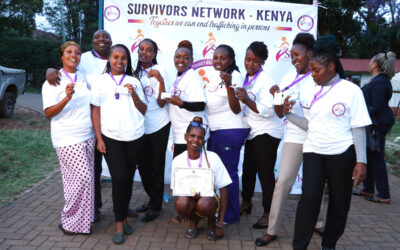Racial injustice is a legacy of slavery. The Emancipation Proclamation and the 13th Amendment outlawed slavery in the U.S., and the U.N. Declaration of Human Rights helped prohibit slavery around the world. But these remarkable achievements did not end slavery. And they have not eradicated systemic injustice that modern forms of slavery still cause today.
In Mauritania, darker-skinned residents are trapped in forced labor by those with lighter skin. In the Dominican Republic, immigrants from Haiti are locked into lives of slavery on sugar cane plantations. In India, the caste system drives millions of people – including children – into bondage at quarries, farms and factories.
Modern slavery marginalizes people in vulnerable racial groups. Human traffickers target these disadvantaged people, perpetuating the brutal cycle of slavery.
This is why the Free the Slaves programs that you support are critical. We work at a community level to change the conditions that allow modern slavery to exist, helping to end slavery and racial injustice.
Do you believe all people are worthy of dignity, and that slavery and racism in any form are unacceptable? Contribute to the freedom work of Free the Slaves.
This fall, I will be sharing stories with you about our strategy to make make entire villages slavery-resistant, helping to end marginalization and discrimination. We do this through education and mobilization at the grassroots, by holding those in power accountable, and by influencing governments, businesses, politicians and social leaders to take a stand for freedom and equality.
Our work to dismantle slavery’s causes and impacts includes overcoming racism and prejudice. This work is challenging and requires a long-term commitment. As a human rights organization, Free the Slaves understands the urgent need to take the lead in the anti-slavery movement.
As we continue to stand for the values of social justice, equal rights, and human dignity, we will work in solidarity with other institutions of conscience – and with you – to move freedom forward everywhere in the world.
Will you continue to support Free the Slaves as we promote equal rights and transform power structures that determine the future? Please join us in advocating for racial justice.




